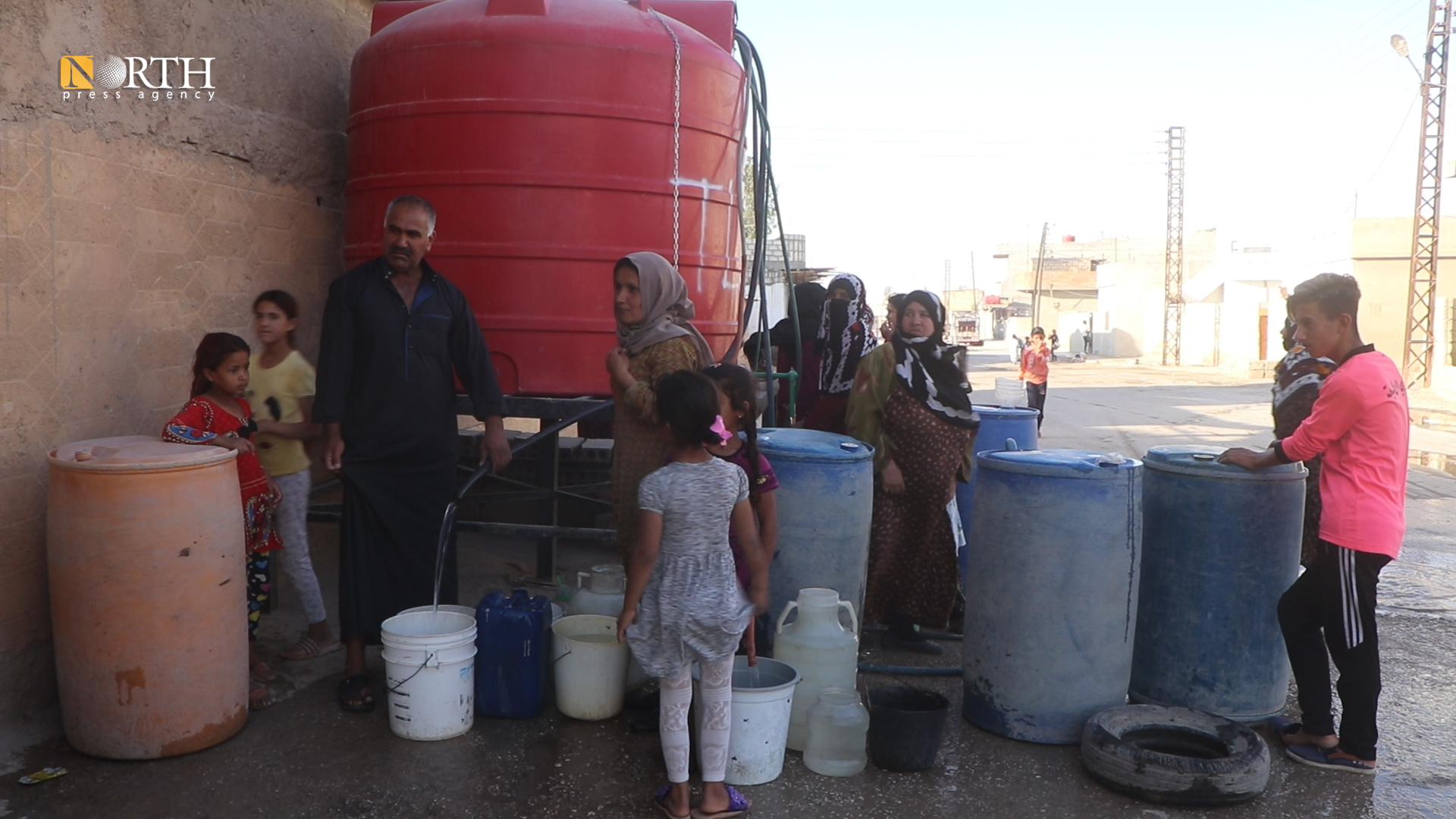One million affected by Turkish water cutoff from Alouk station in Syria’s Hasakah: UNICEF
QAMISHLI, Syria (North Press) – On Thursday, the United Nations Children’s Fund said that one million people in the areas of Hasakah and its countryside, northeast Syria, are at risk due to the continuous disturbances in pumping water from the Alouk station in the countryside of Sere Kaniye (Ras al-Ain), which is occupied by Turkey.
The number mentioned by UNICEF included displaced families and residents in camps and informal gatherings.
Since Turkey and their affiliated armed factions occupied of the Sere Kaniye and Tel Abyad regions in November 2019, Alouk station has been disrupted at least 24 times, according to UNICEF.
The organization pointed out that the local population uses water from unsafe sources due to the failure of the station’s water to reach the families who depended on it.
It also mentioned the decline in the electricity service in the areas of Hasakah, Raqqa, and Deir ez-Zor and its impact on infrastructure and sensitive facilities such as hospitals.
UNICEF has warned of the possibility of the spread of a number of diseases transmitted through unclean water, which may be fatal, amid health conditions in which clean water and the safety of the sanitation service constitute the first line of defense to confront the coronavirus pandemic.
It called for the reconnection of water and electricity services to protect the right of civilians to access to safe water, and urged the provision of safe passage for technicians and humanitarian workers to reach the station and to operate it without interruption.

